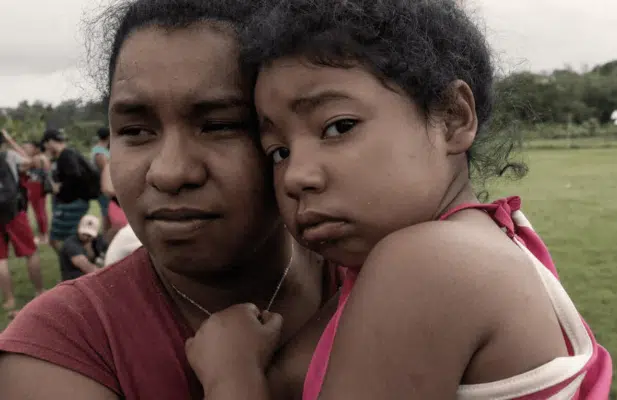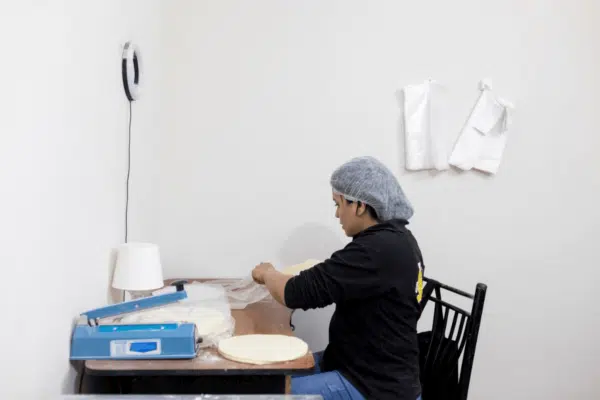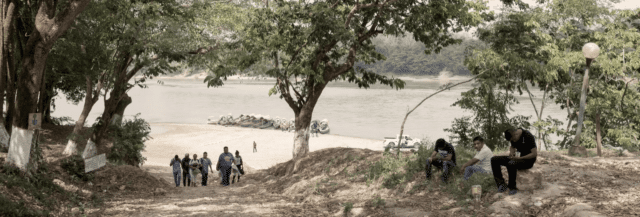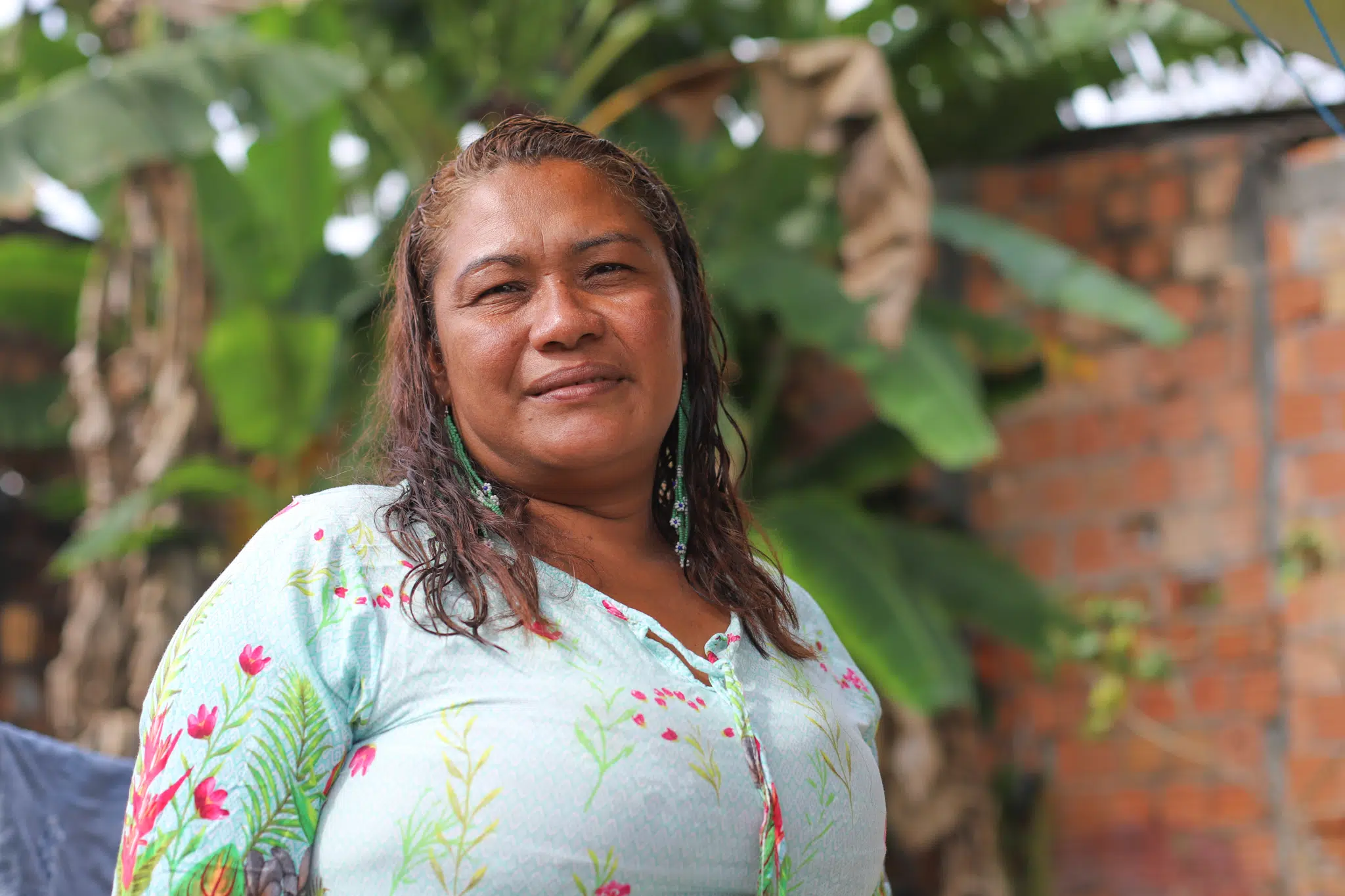
Teacher Daisy applies her 15 years’ experience as an educator to support Warao children in their learning process in Manaus. UNHCR/Felipe Irnaldo
The community leader Daisy Perez works to ensure education for Indigenous refugee and migrant children in Manaus
By Felipe Irnaldo
Manaus, Brazil, 27 June 2023 – Mother of four children, the Venezuelan Indigenous educator Daisy Pérez is the embodiment of the popular wisdom that says there is always room for one more in a mother’s heart.
In Manaus, a city of 2 million people in the heart of the Amazon rainforest, in the state of Amazonas, she sought opportunities and raised awareness among the community to enroll Warao children in public schools, offering them new opportunities for future.
But until she was able to support these people, Daisy had to face personal challenges as a newly arrived mother in Brazil and seek resources to gather and ensure the livelihood of her family.
“I brought my children one by one as I got short resources, when I finally was able to get my whole family back together again. It was what I wanted most” says Daisy, sharing her learning with other families facing the same situation.
In her travels, including to the cities of Pacaraima and Boa Vista in Roraima, and Manaus, Daisy has used all her knowledge to work with refugee and migrant children in shelters and other support spaces, helping to strengthen the local teaching and learning process.
During this experience, she identified priorities for the children’s integration, such as language and information on how to access the public-school network in Brazil.
That’s when she looked for institutions to ensure opportunities for the young students.
“I know many mothers of the community, I am familiar with them, which helps me to identify the needs of their families and seek support. As a mother, I felt I needed to do something to help other mothers” she highlights.
Daisy got support from the Instituto Mana, a partner of the UN Refugee Agency (UNHCR) in Brazil, to gather the documentation and address the several needs of families with local schools, helping the Warao community to enroll 18 children in the public school network.
“Even for a mother who is an educator, the process of teaching is always a challenge… so imagine for other mothers who have not had access to this knowledge, and are on the move… So, the inspiration to enable other mothers to get their children in school, to have this chance,” she said.
With her dedicated work and empathy, Daisy has made a difference to the children’s lives, but her impact already extends beyond that.
Her story inspired her daughter, Deisy Perez, to act as a volunteer Community Promoter in a project developed by Caritas Arquidiocesana de Manaus in partnership with UNHCR. The initiative supports refugee people in Manaus to access services in the region. With knowledge and solidarity being given from generation to generation, the daughter has followed in her mother’s footsteps and contributed to the development of inclusion actions with the Warao population.
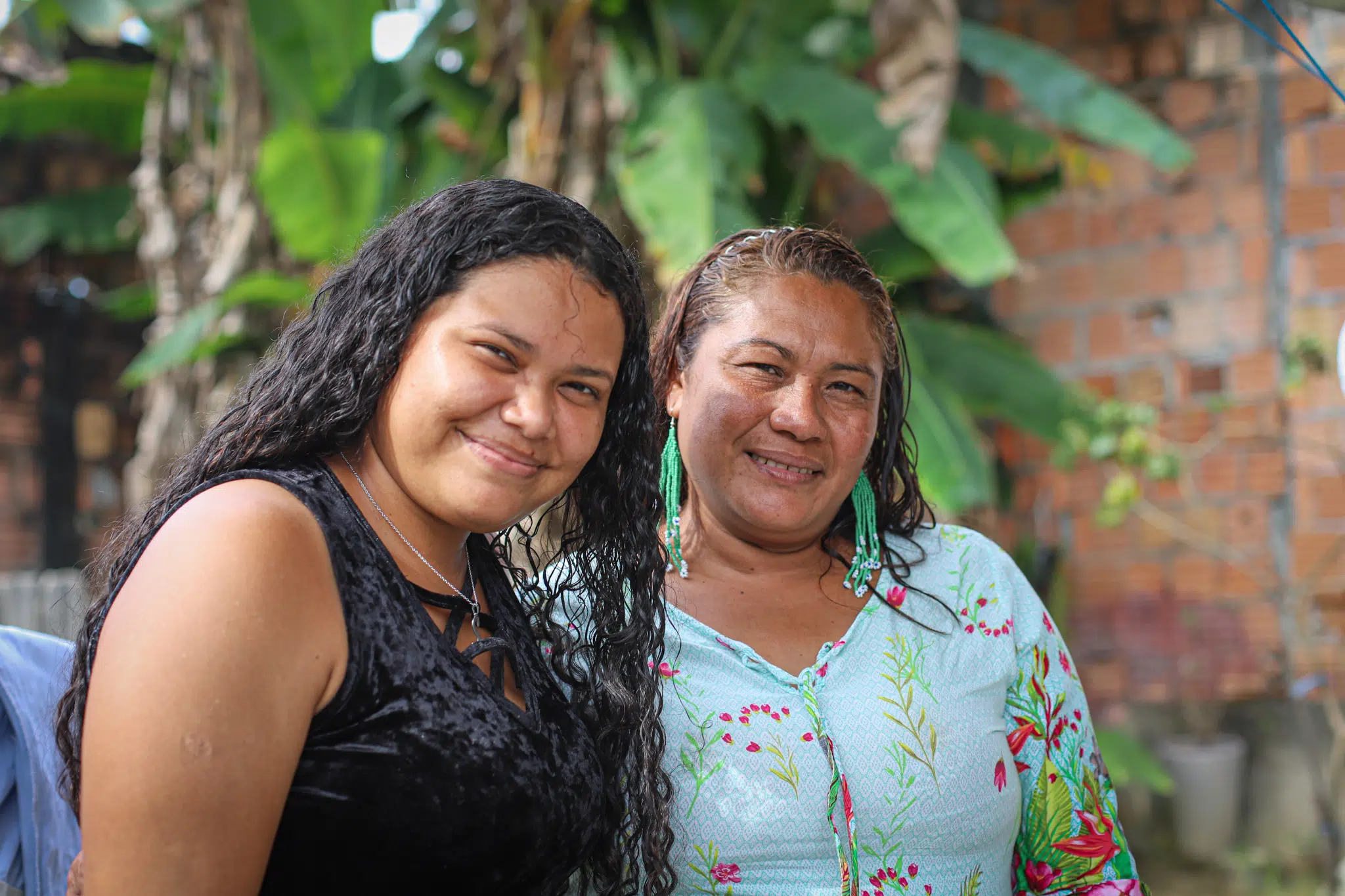
Deisy and Daisy: mother (right) inspired daughter to support refugee and migrant community in Manaus. Photo: UNHCR/Felipe Irnaldo
Stories like Daisy’s show the importance of community involvement and the coordinated work of institutions supporting refugees.
This initiative, implemented by the Instituto Mana, is co-financed by the European Directorate-General for Civil Protection and Humanitarian Aid Operations – ECHO, which contributes with UNCHR Brazil to support refugees, including Indigenous people, to access protection and rights such as documentation, health, and education.
“We seek to closely monitor the demands of communities. The involvement of refugees in this process is what makes the difference, like Daisy has had on the lives of these children,” explains Geisy Rodríguez, from the UNHCR partner Instituto Mana.
These actions to foster education with integration and respect for the cultural processes of this ethnic group are of fundamental importance to ensure rights in Brazil, explains UNHCR’s Assistant Field Officer and Manaus, Juliana Serra.
“More than seven thousand people of the Warao ethnic group have landed in Brazil since the beginning of the emergency in Venezuela. We believe that actions like this aimed at strengthening access to services and rights and valuing the knowledge and traditional processes of Indigenous refugee people is key to the integration of these families.”
Originally published by UNHCR Brazil on 12 May 2023.



